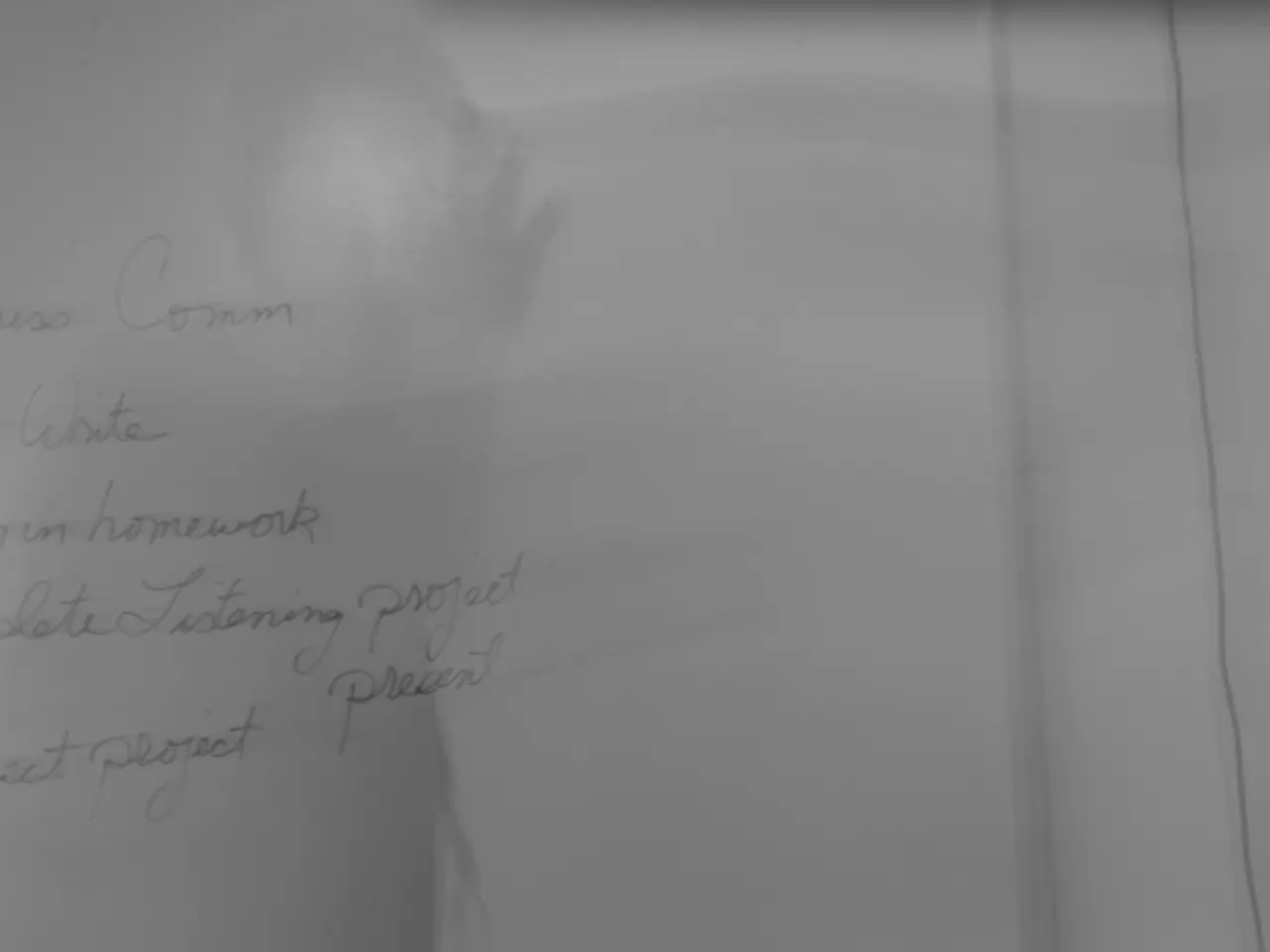"Heidi Reichinnek Stands Firm Amidst Intel Committee Loss"
Reichinnek persists in maintaining his place on the Intelligence Committee.
In defiance and undeterred, Heidi Reichinnek, the Left party's faction leader, hasn't ruled out another bid for a seat on the Parliamentary Control Committee. In an interview with Deutschlandfunk, she hinted at her potential return, saying, "I'm not one to back down easily - it could be me after all."
In a heated election for the committee's members last Thursday, neither Heidi nor the AfD candidates managed to secure the necessary majority. As a result, the Greens' Konstantin von Notz remains the sole opposition MP in the intelligence committee.
An arbitrary loss for Reichinnek? Not so fast, she argues. Instead, she views the outcome as a blow to democracy: "They've dealt another damaging blow to democracy. The real issue is the CDU/CSU's manipulative tactics," she told ARD. "We won't let some factions dictate committee picks."
Union Needs to Respect the Left Party for Future Collaboration
For any future cooperation with the Left, the Union needs to engage on an equal footing, Reichinnek states. "We won't be mere majority providers. Union members looking for something from us need to approach us too - it's the basic minimum," she emphasized. The Left's votes could prove crucial in cases where two-thirds majorities are needed, such as in the election of constitutional judges.
The Parliamentary Control Committee oversees Germany's intelligence services, closely guards classified information, and convenes in a secure room under strict confidentiality. Members are nominated by their parties but must also be elected in the Bundestag.
Marc Henrichmann of the CDU takes over as the new committee chair with a focus on bolstering Germany's resilience. In an interview with the German Press Agency, he stresses the need for robust and modern intelligence services: "We must discuss what we need to do to ensure our intelligence services stay relevant in this fast-changing world and gain more independence from other powerful services."
- Die Linke
- Intelligence Services
- German Bundestag
- Union Faction
Additional Insights:
The failed attempt to secure a seat in the Intelligence Oversight Committee for Heidi Reichinnek might indicate tension and strained relations between her party (Die Linke) and the Union (CDU/CSU), potentially affecting cooperation in sensitive political areas. The aftermath could result in a shift that undermines trust and jeopardizes constructive dialogue, ultimately impairing the democratic process and oversight capabilities of parliamentary committees.
These disputes, especially amidst the shifting political landscape following the 2025 German federal election, could lead to contentious claim-challenges like those seen in Reichinnek's refusal to concede the committee seat, further complicating democracy and political cooperation in Germany.
In light of Heidi Reichinnek's unsuccessful bid for the Intelligence Oversight Committee, the Union may need to address strained relations with Die Linke to ensure future collaboration, given the importance of cooperative votes for achieving two-thirds majorities in the German Bundestag, such as in the election of constitutional judges. The failed attempt to secure the committee seat has highlighted potential areas of contention within the parliamentary control committee, which could jeopardize the democratic process and oversight capabilities if not resolved. Moving forward, the Union must engage with Die Linke on equal terms to maintain constructive dialogue and prevent further disputes.





